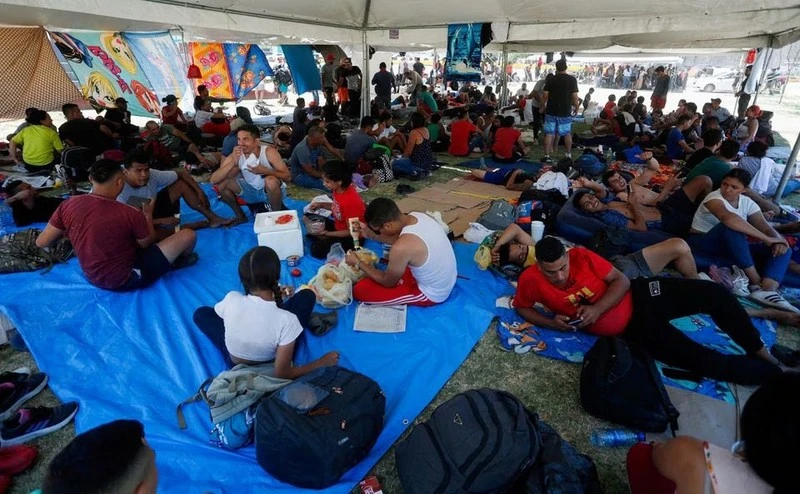An IRC report showed that Ecuador and Haiti have experienced large migrations in recent years as the economic, food and security conditions have declined.
According to the Panamanian migration agency, in 2023, more than 57,000 Ecuadorians and 46,000 Haitians had crossed the Darien Gap, the natural border between Colombia and Panama, to head north in their journey to find their “American dream”. This far exceeded the number recorded in 2022.
Julio Rank Wright, Regional Vice President for Latin America at the IRC, said the crises in Haiti and Ecuador are creating a ripple effect across the entire region.
According to the IRC representative, conflicts between Ecuadorian Government forces and criminal groups are escalating, threatening the lives of the people. In addition, Ecuador is at risk of flooding caused by El Nino, which has deepened food insecurity.
Ecuadorian authorities accuse drug gangs of increasing their activities, which have caused increasing serious violence and public panic.
To deal with the wave of violence, Ecuadorian President Daniel Noboa ordered a military attack on criminal gangs, aiming to return peace to the people in the country.
Ecuadorian police also recently coordinated with Spanish police to carry out 57 raids in six provinces of Ecuador and four cities in Spain, arresting at least 30 people involved in money laundering and drug trafficking activities.
Meanwhile, criminal issues such as kidnapping, robbery and murder are constantly increasing in the poverty-stricken country of Haiti. Armed gangs even seized some of Haiti's main ports and caused shortages of consumer goods.
Criminal gangs have also expanded their scope of activities, spreading their operations to rural areas by occupying agricultural land and threatening the lives of farmers, thus making food insecurity in Haiti even worse in 2024.
The Haitian Order of Human Rights Defenders (ORDEDH) said that in just the first 15 days of 2024, Haiti recorded 63 people, including young men, women, community members and even criminal elements, were killed due to violence.
The United Nations Office in Haiti said that in 2023, more than 8,400 people were victims of gang violence in Haiti last year, including killings, injuries and kidnappings – a 122% increase over 2022.
The United Nations Representative for the country expressed concern that about 300 gangs control an estimated 80% of the capital and accounted for 83% of last year's killings and injuries. Gangs kidnapped nearly 2,500 people in 2023, an 80% increase against 2022.
Gangs are expanding operations north to the Artibonito region, considered Haiti's breadbasket. Meanwhile, armed criminals carried out many large-scale attacks in the south of the capital to control critical areas.
Although the United Nations has approved a plan to deploy a multinational force to Haiti, led by Kenya, to help suppress armed criminal gangs, this plan faces organisational and financial difficulties, so it is unknown when the plan can be deployed.
Many Ecuadorians and Haitians say they have no choice but to flee from the violence, forced to migrate, including illegal migration, to keep themselves and their families safe.
In that context, IRC calls on the international community to quickly support these two countries in dealing with violence, poverty and humanitarian crises, including “concrete funding commitments”, as nearly half of Haiti's population requires humanitarian aid and roughly 40% of Ecuadoreans are living below the poverty line.
















